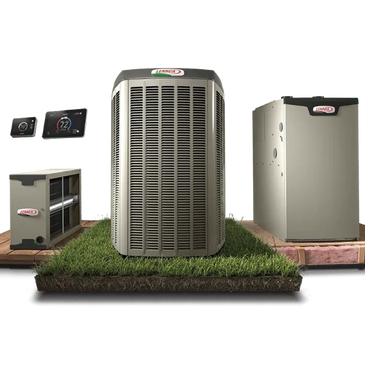
Maintaining a comfortable home environment is essential, and two key systems play a crucial role: your furnace and your air conditioning. These systems work tirelessly to keep you warm in the winter and cool in the summer. Understanding how they function, their maintenance needs, and when to consider replacements can significantly impact your home's comfort and energy efficiency.
Understanding Your Furnace
A furnace is a heating system that works by heating air and distributing it throughout your home via ductwork. Most modern furnaces use natural gas, propane, or electricity. Here's a breakdown of key furnace components and concepts:
- Burner/Heating Element: This is where the fuel is burned (or electricity is used) to generate heat.
- Heat Exchanger: This component transfers the heat from the combustion process to the air.
- Blower Motor: This fan circulates the heated air through your home's ductwork.
- Thermostat: This device controls the furnace, turning it on and off to maintain your desired temperature.
- Air Filter: This vital component removes dust, pollen, and other particles from the air, improving indoor air quality.
Regular maintenance, such as changing the air filter and scheduling annual inspections, is crucial for optimal furnace performance and longevity. Ignoring maintenance can lead to reduced efficiency, increased energy bills, and even safety hazards.
The Essentials of Air Conditioning
Your air conditioning system, often referred to as an AC unit, works by removing heat and humidity from your home. Here's a closer look at how it operates:
- Compressor: This component pressurizes the refrigerant, raising its temperature.
- Condenser: Located outside, this component releases the heat from the refrigerant.
- Evaporator: Located inside, this component absorbs heat from the indoor air, cooling it down.
- Refrigerant: This substance cycles through the system, absorbing and releasing heat.
- Blower Motor: Similar to a furnace, this fan circulates the cooled air.
Proper AC maintenance, including cleaning or replacing air filters, cleaning the condenser coils, and checking refrigerant levels, is essential for efficient operation. Just like your furnace, a yearly inspection is recommended. A neglected AC unit can lead to higher energy costs, reduced cooling capacity, and premature failure.
Furnace and Air Conditioning Maintenance Tips
Here are some practical tips to keep your furnace and AC systems running smoothly:
- Regular Filter Changes: Replace your air filters every 1-3 months, depending on usage and filter type.
- Annual Inspections: Schedule professional inspections and tune-ups for both your furnace and AC.
- Clean Condenser Coils: Keep the outdoor condenser unit free from debris and dirt.
- Check for Leaks: Inspect ductwork and refrigerant lines for leaks.
- Maintain Proper Ventilation: Ensure proper airflow around your units.
- Use a Programmable Thermostat: Optimize energy usage by setting temperature schedules.

When to Consider Replacement
Knowing when to replace your furnace or AC is crucial. Here are some signs that it might be time for a new system:
- Age: Furnaces and AC units typically last 15-20 years.
- Frequent Repairs: If you're constantly repairing your system, replacement might be more cost-effective.
- Increased Energy Bills: Older, less efficient systems consume more energy.
- Uneven Temperatures: If your home has hot or cold spots, your system might be failing.
- Strange Noises or Smells: Unusual sounds or odors can indicate serious problems.
Investing in a new, energy-efficient furnace or AC system can provide significant long-term benefits, including lower energy bills, improved comfort, and enhanced indoor air quality. When considering a replacement, research different models, compare energy efficiency ratings, and consult with a reputable HVAC professional.
The Importance of Professional HVAC Services
While some maintenance tasks can be performed by homeowners, professional HVAC services are essential for complex repairs, installations, and inspections. A qualified technician can diagnose and address issues accurately, ensuring the safety and efficiency of your systems. Regular professional maintenance can also extend the lifespan of your furnace and AC, saving you money in the long run.
By understanding the fundamentals of your furnace and air conditioning systems and following proper maintenance practices, you can ensure a comfortable and energy-efficient home environment year-round.
No comments:
Post a Comment
Note: Only a member of this blog may post a comment.